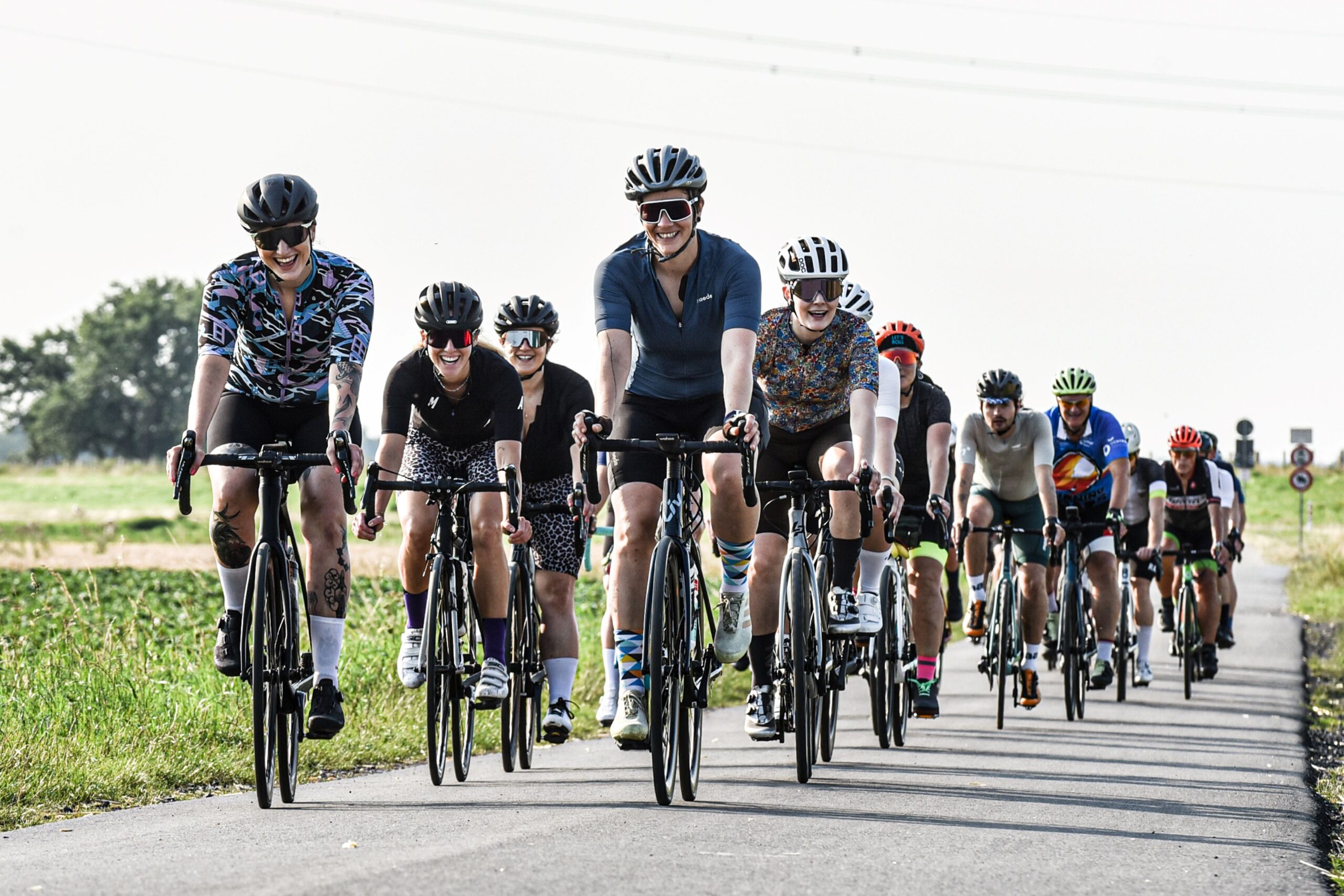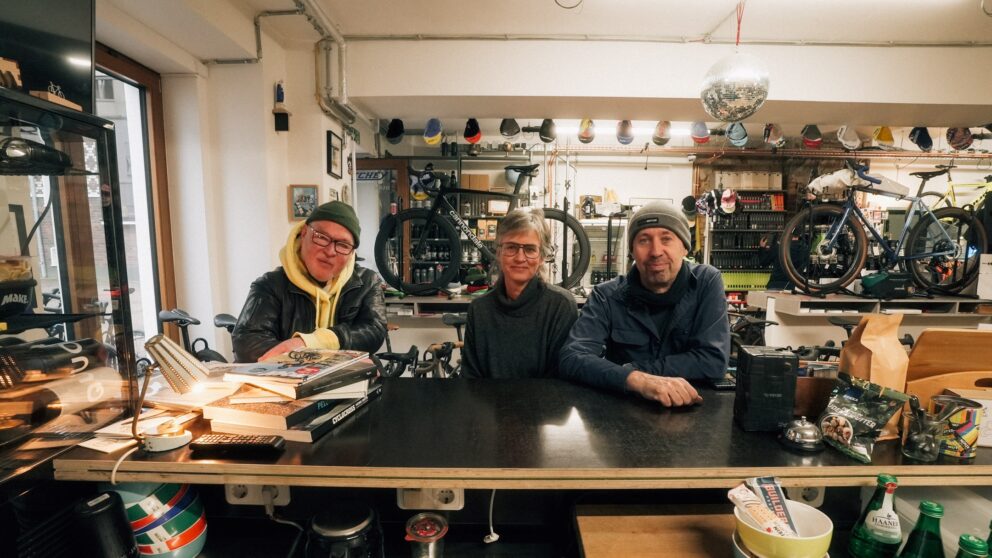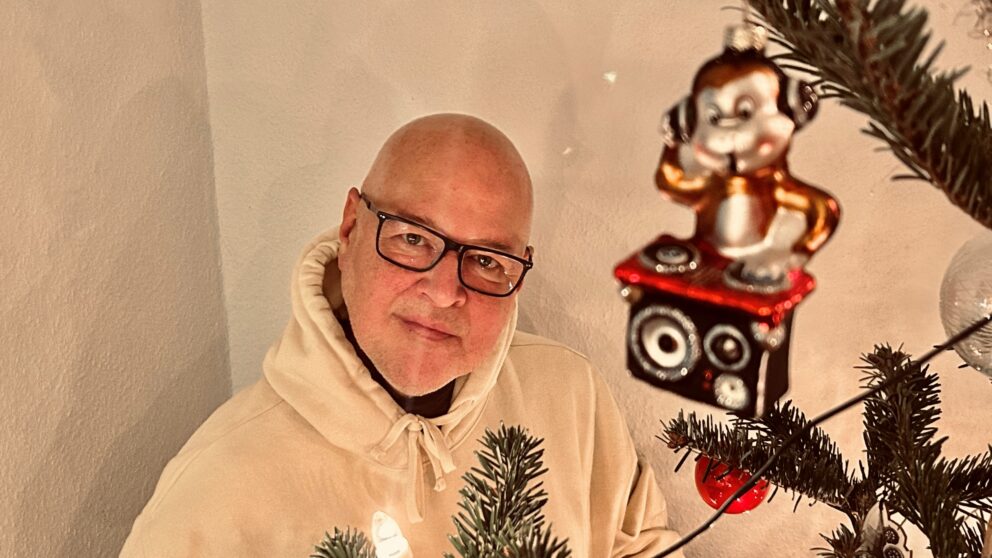
Three questions for Kerstin Kortekamp about women’s cycling
“To make road bike riding attractive to women it needs to be visible and feel normal.”
Kerstin Kortekamp is one of the owners of Schicke Mütze, a shop for road and gravel bikes. The 57-year-old has two grown-up daughters and five grandchildren. Sport is her passion, especially cycling. She used to ride mountain bikes but switched to road bikes after winning one in a raffle. Soon after that she went on her first organised ride, and she was hooked. For anyone who isn’t a cycling enthusiast, rides are group touring events organised by the cycling community. There are different categories, such as gravel bike or road bike rides. In 2018, after Kerstin had already organised a few women-only road bike rides, she launched ‘Frauenbewegung Rennrad’ (the women’s road bike movement), an open event format that has been running weekly rides since 2023.

What exactly is the idea behind Frauenbewegung Rennrad, and how did you come up with it?
Organising road bike rides is and always has been part of Schicke Mütze’s DNA. But those rides were always mixed, and the vast majority of the participants were men. Cycling as a sport is dominated by men anyway. However, there are differences in performance between men and women, for example when it comes to speed. That means women are often under a lot of pressure just to to keep up. On top of that, some women don’t feel very comfortable in a group that mainly consists of men. I used to think it was really cool and rather flattering to be accepted as an equal by a bunch of men, but now I think that’s nonsense. It hardly suggests a healthy, self-confident attitude towards being a woman. I don’t think there is anything odd about women on road bikes. They may currently only account for a small proportion of cyclists, but their number is growing. But to make riding road bikes even more attractive to women it needs to be visible and feel normal.

In 2013, the cause of female cycling gained new momentum when cycling apparel manufacturer Rapha launched its Women’s 100 challenge. This initiative has evolved into something like an International Women’s Day for female road cyclists. The Women’s 100 encourages woman across the world to ride 100 kilometres or more on a particular day. I took up that challenge in 2013, with a group of three women and 30 men. We simply declared the guys to be honorary ladies for the day. Then the following year we managed to get 16 women on board and in the third year more than 40. That was the initial spark for setting up women-only rides, which eventually became the Frauenbewegung Rennrad that’s been going strong since 2018.

Has the perception of women in road cycling changed in the meantime? And has the "women's road cycling movement" contributed to this?
Yes, quite a bit has changed already. For example, Demi Vollering is the first professional female rider with a one million euro contract. There’s a Tour de France for women again – and it’s televised! More and more woman are also taking up cycling as a leisure pursuit. I’d like to think that we have played our part in these trends. To give you one example, here at Schicke Mütze we have been on the organising team of the ‘Rund um die Kö’ cycling event since 2016. I campaigned hard for the inclusion of a women’s race. It was important to me that there is a race where the course along Königsallee belongs exclusively to female cyclists. That’s one way to make cycling more interesting for women. And it worked, because every year our women’s races attract plenty of registrations and they are just as exciting – and just as thrilling for the spectators – as all the other races.

Do you have any tips for women who do or want to ride road bikes?
I’ve got loads of tips, but above all, my first tip for women from this region is to join us on our rides with Frauenbewegung Rennrad. We get a lot of feedback about how great it is to explore the countryside with other women – without any pressure to perform. It’s an easy way to make friends, and to get to know new people. During our rides, there’s enough space and time to have a chat, about cycling and about all sorts of other things. It’s also a good way to network with other women. My second tip: if you’re serious about road bike racing, I’d recommend you find a suitable club. They offer lots of opportunities for targeted training to improve your own performance. It’s also easier for women to find like-minded people in a club, for instance to enter races together. Another advantage of clubs is that the more women are active in them, the easier it becomes to change the structures within the sport of cycling to benefit all women.

Further information
If all this has whet your appetite to find out more about cycling, you can join the Frauenbewegung Rennrad Facebook group and sign up for a ride. Participants are free to choose how much they want to pay for registration. All contributions are donated in their entirety to World Bicycle Relief. This NGO uses the money it receives to provide bicycles to people in developing countries. Its aim is to increase mobility by enabling children in rural areas to cycle to school instead of having to walk long distances. Bicycles also make workplaces more easily accessible, while cargo bikes can transport goods without the need for cars or vans.
Interview: Cynthia Blasberg
Photos: Kerstin Kortekamp




